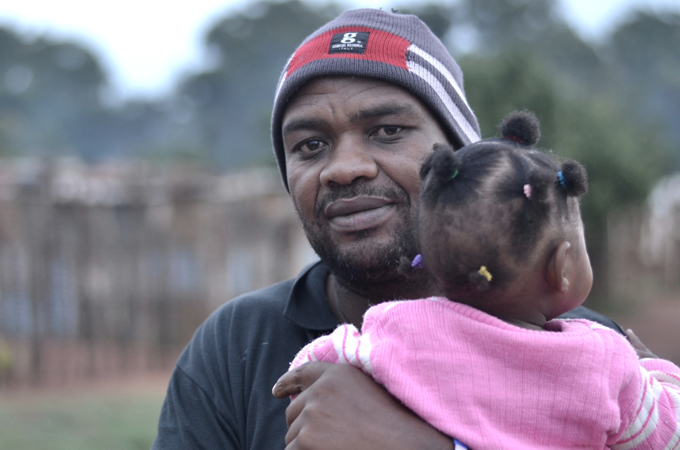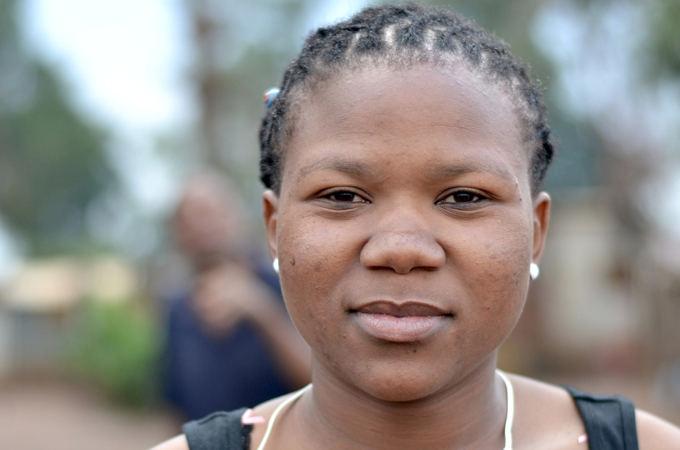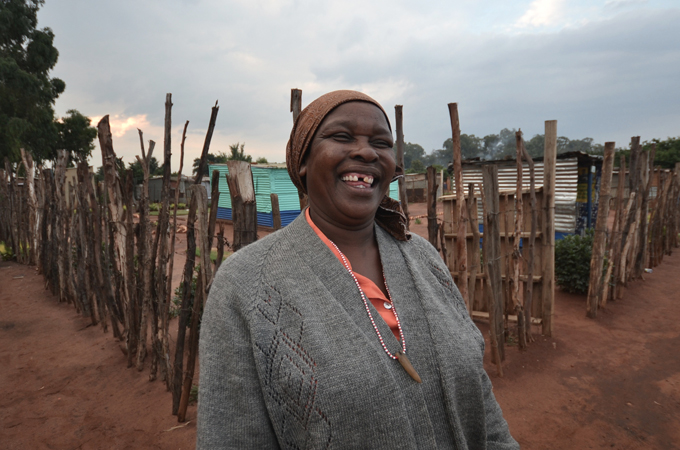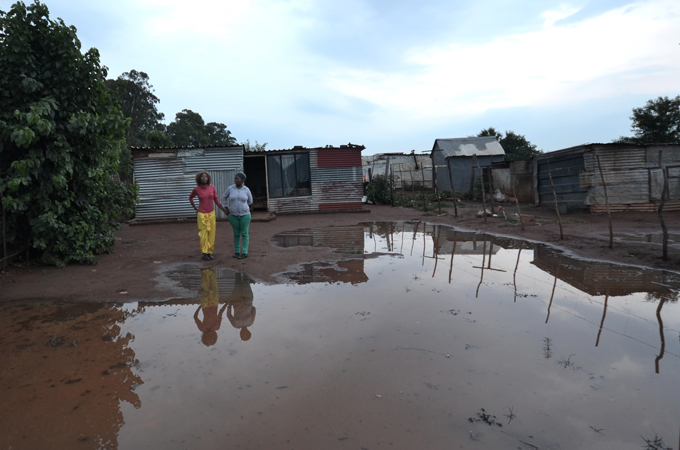Mandela remembered in the rain and mud
South Africa’s urban poor reflect on Mandela’s death, political exclusion and the burden of a failing economy.

Waterworks, South Africa – In South Africa, there isn’t a newspaper that didn’t bear the image of Nelson Mandela over the weekend. Likewise, television and radio have pulsed with a single name, “Madiba”, Mandela’s tribal moniker.
While messages of love pour through the live streams positioned outside Mandela’s suburban home in Houghton, or his former home on the now-famous Vilakazi street in the township Soweto, millions of South Africans remain excluded from the official conversation about the country’s first black president.
Almost 2 million people live in informal settlements across the country. With the rural economy fast collapsing, and thousands descending onto the cities, local governments are simply unable to deliver enough employment and housing closer to urban areas.
Just 20km from Johannesburg, the Waterworks informal settlement scratches at the earth beneath the shade of mighty, but ailing, gum trees. Children walk through the sludge from recent rains, skipping over dirt and muck.
Amid the gloom, there exists a disdain for Mandela’s ruling African National Congress (ANC) party. Police are responsible for the fallout of the non-delivery of services and deteriorating living conditions. Common sentiment expressed here is contempt for President Jacob Zuma and his cohorts.
Even beloved Madiba does not escape their wrath, except with one slight difference; Mandela’s failures are simply what made him a man, and not a God.
Al Jazeera visited Waterworks to hear what the urban poor who dwell here had to say about the passing of Madiba, freedom, and South Africa’s next election.
| Sipho Kadi, 40, unemployed |
 |
| Sipho Kadi [Azad Essa/Al Jazeera ] |
I think as a citizen of this country, I am very much disturbed and saddened by his death. The timing of his death is not correct. Maybe he should have died in 20 years, so he could have witnessed the progress in this country. He wanted to see this rainbow nation develop, which it hasn’t.
I think Mandela did not die a proud person. If he was proud, he would have gone to the graves of the elders of the struggle and said to them: ‘Look … we managed to succeed.’ But he didn’t.
If I were God, I would have let him live till 150.
Our government wants us to remain beggars. We have been waiting and waiting, but nothing seems to change. And it was a white-and-black issue, today it is our own people treating us with no respect. They forget we put them into power.
| Tebogo Seleho, 27, brick-layer |
 |
| Tebogo Seleho [Azad Essa/Al Jazeera] |
Who will take his place, this is the question. We are not happy. But we are glad he fought for us, and we can do anything we want because of him.
I am educated because of Mandela. I finished school because of him. The doors are open because of him. I need to continue what he started for me.
We don’t have full freedom yet here in Waterworks, and many of us are voting. Many are now voting for other parties, but our father [Mandela] gave us the chance to take part.
It is going to be a struggle for the younger generation. But we have to fight for our rights. There is so much of corruption. So many of us don’t have stable lives. If they take away the land, what will we do, where would we go?
| Busiswa Nkinqa, 28 |
 |
| Busiswa Nkinqa [Azad Essa/Al Jazeera] |
I feel sore that he has passed on. He did a lot for us, changed our lives. We can work, interact with white people, and we can live without fear of the police.
Today we have access to social grants, there are schools for kids – this is only due to Mandela.
I feel like I am respected as a woman – because of Mandela.
There is no one like Mandela. Since Zuma became president, there has been a lot of protests for better services. He is a corrupt president, and he is nothing close to Mandela. He is also coming with funny stuff: now gay people can marry, everything about Zuma is corrupt.
| Alinah Sentebane, 51 |
 |
| Alinah Sentebane [Azad Essa/Al Jazeera] |
Mandela liberated us from apartheid.
I will not be voting next year because Mandela is gone.
If only Mandela was still around, and able to help, I would be out of a shack.
| Andries Mere, 43, scrap-metal worker |
 |
| Andries Mere [Azad Essa/Al Jazeera] |
I feel really bad because we have lost a good father who did so much for everyone. Everybody in the world are feeling bad.
He built our schools, gave us freedom, and social grants.
The fault is not with Mandela. The fault is with the leaders that came after him.
We are suffering because of the people Mandela put in charge. They don’t do their job.
| Mpho Matshimawe, 17, student |
 |
| Mpho Matshimawe [Azad Essa/Al Jazeera] |
It has been painful to see him go.
Here, we have no water, electricity, or even houses. The outside toilet has not been cleaned in six months because the municipality has not come.
I will be 18 years old next year, but I will not be voting. I will vote when I see things starting to change, but nothing ever changes here.
It is not safe to live here, as you can see. There is no security and we are at risk all the time.
Follow Azad Essa on Twitter